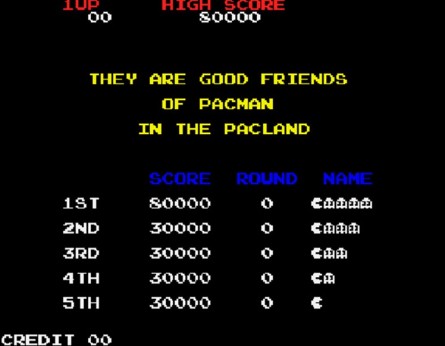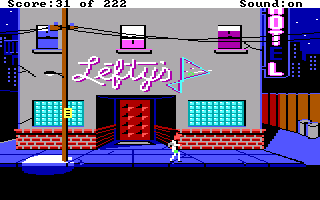
RetroHate
I am Not a Number
Let’s talk numbers shall we? No this isn’t math class or economics class, this is more of a personal pet peeve of mine regarding retro arcade and console games and how they measure success; namely, the High Score.
The High Score is a curious creature that is obsessed with numbers. He loves to assign arbitrary values to actions and items within a game. If he’s in a good mood, he’ll start multiplying numbers based on your performance or throw out bonus numbers out of the goodness of his heart. If you upset him though, he’ll pull out some subtraction action and take away those numbers you may or may not have rightly earned. At the end of your game he’ll “rate” your performance based on how grand of a total of numbers you have. Then he’ll encourage you to affix your name to your very own “High Score” so you can show it off to your friends and random strangers.
So what is it I don’t like about High Scores? Well, let’s start with arcade and pinball games since they’re the most common hosts of High Scores. In pinball and a lot of early arcade games, High Scores were the only means of “level progression” through the game. There weren’t specific “levels” or “stages” you would clear, the game would just continue infinitely, keeping track of your “score” until you lost. There was no real “win” state in the game (well, I suppose you could count the mythical “Killscreen”) you just played ’til you lost. Your only measure of “success” was your High Score which somehow correlated your performance into binary, meaningless numbers. In fact, one could argue that the point of the game wasn’t to “finish it” at all, but to get a larger number than your friends or random strangers. In fact, you could conceivably get a higher score even playing less of the game than someone else. It was like a pumpkin growing contest where some of the giant pumpkins could only take a few days to grow into giants.
So if playing a game where the only sense of progression is a ticking number at the top of the screen bugs me, then playing a game that actually does have proper level progression or even a plot but still has a score flat out annoys me. When I play a game, it’s to experience the game, progress through the story, see all the levels that the designer laid out for me. I couldn’t care less about whatever arbitrary number sits at the top of the screen after I rescue the princess, save the president or defeat the mad scientist. The number is meaningless because I’ve already “won” the game. Could I play the game again “better” than the first time? Sure. But I’m my own judge of gameplay quality, a higher number only tells me… I got a higher number than last time. Sure, maybe I killed more baddies this time or collected more Macguffins, or finished a level slightly faster, but was I really better? My sense of betterment comes more from playing the game smoother, with more confidence (and fewer deaths) than previously. Numbers mean nothing to me. I am not a number. I am not a computer.

